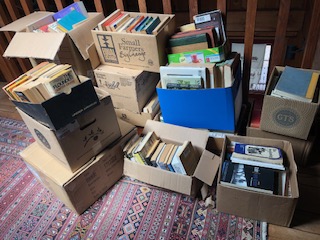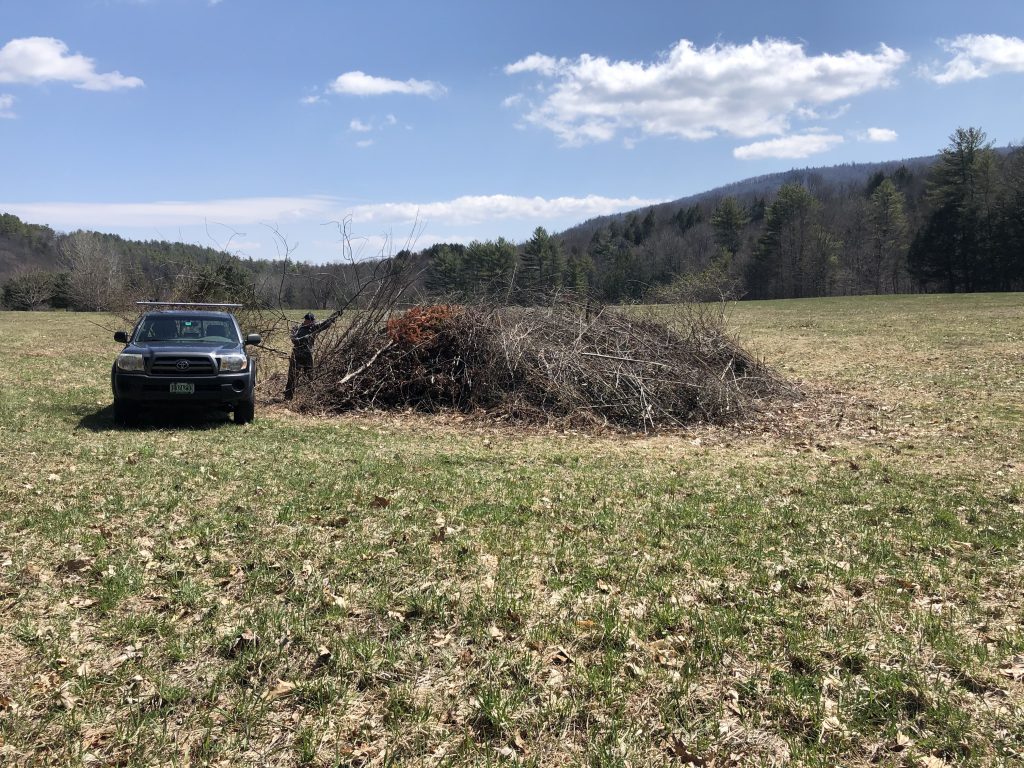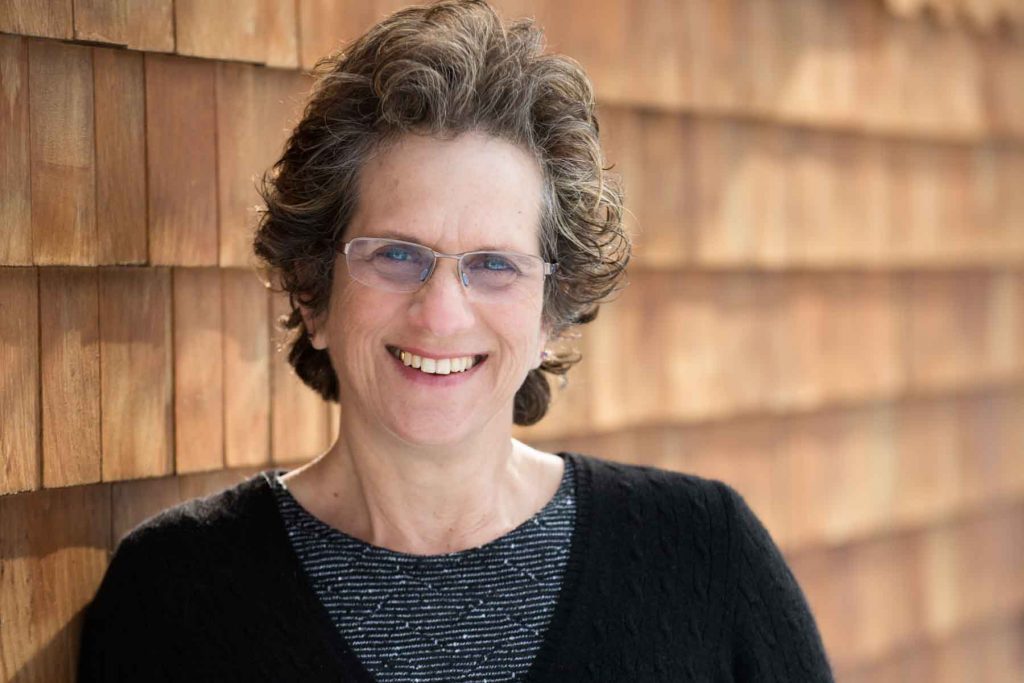Stay Home – Stay Safe
We’re spending the pandemic clearing brush from the edges of the fields and culling books from our library shelves. Both tasks have been on our To Do list for years, and neither has ever been done as comprehensively as now. It’s just never been so easy to allocate this much time to either project until the governor ordered us to stay home to stay safe.
Clearing Brush
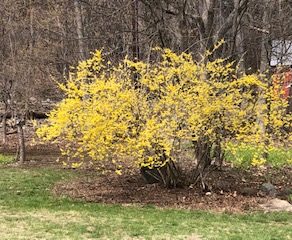
The outdoor project started when I looked out the window and saw the forsythia starting to bloom in a tangle of wild roses, so I liberated it. This is satisfying work, like editing a rough draft and making my prose sing. So I kept on, pulling out weeds and invasive plants that had taken over a garden that was somewhat wild to begin with – one of those marginal spaces between pucker-brush and lawn.
Before long we became owners of a brush cutter, pushing back the northern edge of the upper field, and then the southern one. It didn’t take long to learn that cutting brush is easy; dragging it out of the tangle-weeds, loading it onto the trailer, and adding it to the burn pile, not so much.
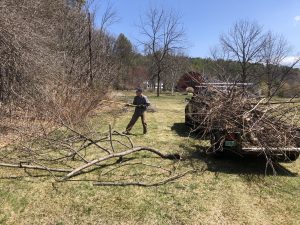
Why do we call this clearing brush, when the cutting of it is the fastest, most satisfying part, and the hauling it away the most time-consuming and difficult? It’s like painting a room, which is slick and easy after pushing the furniture out of the way, removing art from the walls, unscrewing switch plates, vacuuming dust, wiping away dirt and discovering missing earrings, lost socks, and loose change.
Culling Books
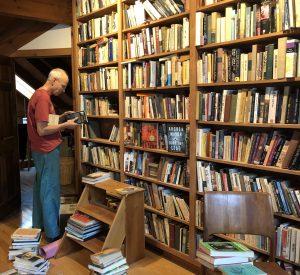
We’ve finished the first pass of the upper field and are now reclaiming the edges of the much larger lower field on days the weather is fine. When it rains, we’ll return to culling the books in the loft, where the floor-to-ceiling bookshelves reached capacity years ago. Since then, we’ve been stacking books on the floor.
I’ve wanted to tackle this job for a long time, but I couldn’t do it without Tim since the books are his, mine and ours. We don’t always read the same books, or respond to those we’ve read in common the same way, so we had to decide how we would decide which books to keep and which to give away.
My first rule was to chuck the mass-market paperbacks with yellowed pages, cracked binding and tiny print. Next we discarded books we were unlikely ever to reread. We kept those books we might not reread but still needed to own for reasons we couldn’t really explain.
I finally said farewell to much of the literary criticism from my graduate school days, but held on to the original texts, including Elizabethan Drama by contemporaries of Shakespeare plus the work and some of the newer biographies of The Bard himself. We opened up several inches of shelf space every time we deleted a duplicate of a nineteenth-century British novel. We organized the fiction and poetry alphabetically by author and saved the better anthologies of short stories and poems on shelves of their own. On the next rainy day, we’ll move on to non-fiction, large format art books and family photo albums.
When It’s Safe to Gather Again
In the meanwhile, the boxes of discards wait in the hallway until we can donate them to a charity book sale, and the brush pile grows gargantuan. It will be a happy day when the virus subsides, the fire ban lifted, and we can light a bonfire to celebrate gathering again with family and friends.
